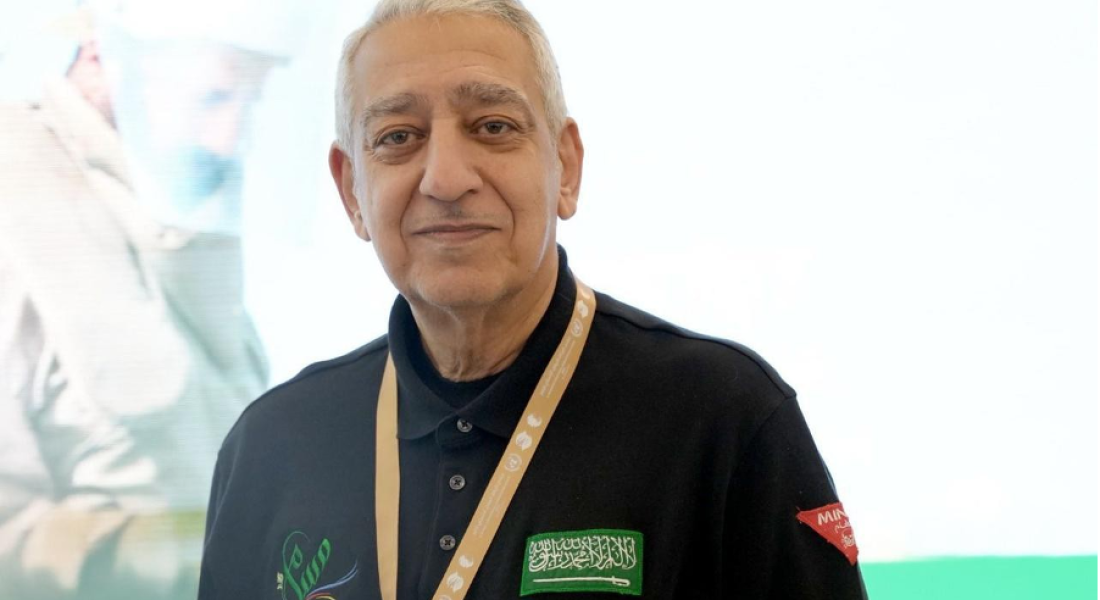Full speech delivered by Project Masam’s Managing Director Ousama Algosaibi on International Day for Mine Awareness and Assistance in Mine Action, on 4 April 2025.
“On this significant day, April 4th, dedicated to Mine Awareness and Humanitarian Mine Action, it is both an honour and a responsibility to address an issue of profound importance – not only to Project Masam but to the entire humanitarian community and the future of Yemen.
As many of you know, over the past months, there have been substantial cuts to funding that supported critical demining efforts, leaving the safety and security of thousands of Yemeni civilians at even greater risk.
The withdrawal of key supporters of mine action activities in Yemen have forced the cessation of vital partnerships with organisations, which, alongside us, have played an instrumental role in clearing landmines, assisting survivors, and ensuring safer futures for Yemeni civilians. Their withdrawal leaves a devastating gap in the humanitarian landscape of Yemen.
The theme for this year’s International Day for Mine Awareness and Assistance in Mine Action, “Safe Futures Start Here,” resonates deeply with our mission. It encapsulates the hope of civilians striving for a future where children can safely attend school, farmers can cultivate their land without fear, and families can rebuild their lives free from the terror of hidden explosives. Sadly, this vision remains far from reality.
Despite international efforts to curb the use of landmines and explosive devices, the Houthi militia continues to indiscriminately plant these lethal threats in streets, farms, markets, and even schools. As one mine is cleared, dozens more are planted, prolonging the suffering of Yemenis and obstructing any hope for recovery.
Since its inception in 2018, Project Masam has been at the forefront of demining efforts in Yemen. Fully funded by the Kingdom of Saudi Arabia, our teams have worked tirelessly to clear these remnants of war. As of March 2025, our dedicated teams have removed 6,770 anti-personnel mines, 146,262 anti-tank mines, 8,208 improvised explosive devices, and 324,867 unexploded ordnance; clearing a total of 65,888,674 square meters of land. Each mine removed is a life potentially saved, a future secured.
Our mission, however, extends beyond mine clearance. It encompasses three fundamental pillars: demining, peacebuilding, and rebuilding Yemen’s future.
First, our primary goal remains the removal of landmines and explosive devices, ensuring safe spaces for civilians to return to their homes and livelihoods. Our teams operate under incredibly hazardous conditions, and we call upon the Houthis to provide critical information regarding minefield locations. The refusal to share this data endangers not only our deminers but also countless innocent civilians.
Second, our work is intrinsically linked to peacebuilding. Landmines do not just claim lives—they instil fear, disrupt stability, and undermine efforts for long-term peace. We are committed to seeking accountability for those responsible for deploying these weapons. Working with local and international stakeholders, we continue to collect evidence to support justice initiatives that hold perpetrators accountable.
Finally, Yemen faces one of the most severe humanitarian crises in the world. The country is on the brink of famine, and millions of Yemenis struggle for survival. Demining is not just about safety: it is about economic recovery, rebuilding infrastructure, and enabling displaced families to return home. Every piece of land we clear is a step towards restoring normalcy and hope to communities ravaged by war.
Unfortunately, despite the urgent need for serious international action to end these tragedies, the world today is facing an unprecedented humanitarian crisis, which requires a clearer definition of many concepts and international legislations to resolve the ongoing debate about what is permissible and what is internationally prohibited. This is especially crucial when addressing humanitarian considerations and the principles that underpin them, such as the prohibition of weapons that cause excessive harm, the distinction between military and civilian personnel in armed conflicts, and the principle of proportionality.
Additionally, there are ambiguous concepts that have made human life and the future dependent on international resolutions and conventions, which, unfortunately, have opened the door to grave violations under the pretext of military necessity. These include the First and Second Geneva Conventions of 1949, the 1990 Declaration on the Rules of International Humanitarian Law concerning the conduct of hostilities in non-international armed conflicts, and other principles and concepts that have been used as pretexts by those planting mines and explosive devices among civilians, who should be at the forefront of international protection and care, as mandated by international legislation and the will of the international community.
As the largest humanitarian demining organisation operating in Yemen, we are acutely aware of the burden we carry. This is why we call upon the international community (governments, NGOs, and humanitarian actors) to take a stand, take responsibility and respect these international agreements they have ratified.
We urge them to pressure the Houthis to disclose minefield locations and to reinstate funding for critical mine action efforts in Yemen. The safety of millions depends on it.
On this International Day, we remember the thousands of mine victims in Yemen, as we stand alongside millions of Yemenis to protect them from the imminent danger these weapons pose to their lives.
To our dedicated staff on the ground—your bravery, perseverance, and unwavering commitment make this mission possible. To our colleagues in Yemen and around the world – your support and collaboration give us strength. To our funders, the Kingdom of Saudi Arabia and its leadership: your generosity enables us to continue this lifesaving work.
As we move forward, let us remember: we are not just removing landmines; we are clearing the way for a safer, brighter, and more prosperous future for Yemen. Let us stand together in this cause, stronger and more determined than ever.
Thank you.”

